Viewpoint: Will Pakistan mend its ways on terror?
- Published
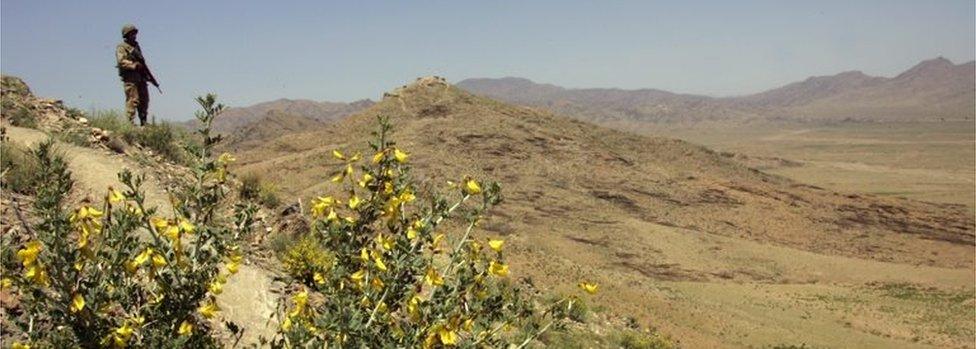
Can Pakistan's army be trusted to rid the country of militants?
A global terror financing watchdog is putting pressure on Pakistan to do more to rein in terrorist groups operating from its soil - or face the consequences.
When the Financial Action Task Force (FATF) next meets in late June Pakistan faces going onto a "grey list", the first stage on the road to sanctions.
Unless it eliminates terrorism, it could end up on a blacklist, which would lead to a much harsher regime of punitive measures.
Western nations have also warned Pakistan it would face sanctions and a reduction in aid if it insists on evicting some 22 international non-governmental organisations, which have operated in Pakistan for many years.
For decades Pakistan's military and intelligence agencies are suspected of having given sanctuary to extremist groups which subscribe to the state's anti-India agenda or support its Taliban allies in Afghanistan.
Since 9/11 there have been multiple attempts through persuasion and threats by the US and Nato countries to force Islamabad to rein in these groups, but Pakistan has emphatically denied the charges and managed to sidestep the pressure it has faced.
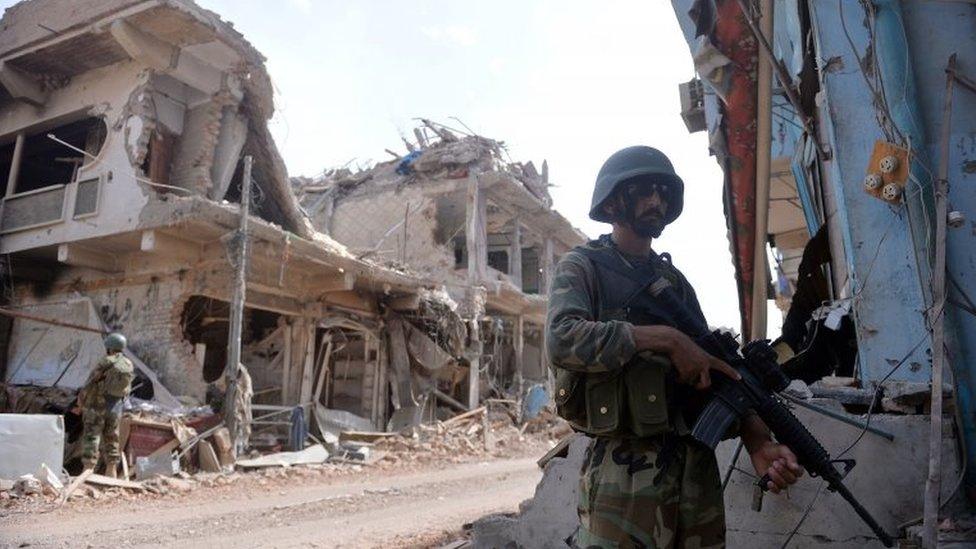
Pakistan sent its forces into tribal areas to clear them of militants
At the meeting, Pakistan will automatically go onto a grey list unless it is able to provide evidence of a genuine crackdown on two sets of militants - groups based in Punjab province led by Lashkar-e-Taiba who attack Indian targets across the border in Indian-administered Kashmir; and the multiple groups operating out of western Pakistan, which attack Afghan and US forces in Afghanistan and are led by the Taliban and the Haqqani group.
The government and the army firmly deny Pakistan is harbouring terrorists and say the security forces have suffered large-scale casualties from Pakistani extremist groups now operating out of Afghanistan who cross the border to attack Pakistani targets. These include Islamic State militants, the Pakistani Taliban and other groups.
In late April representatives of more than 70 countries who make up FATF met in Paris and pledged to "fully criminalise" terror financing and end fundraising by the Islamic State and other groups. Privately, Pakistan was put on the mat for its continued alleged tolerance for terrorist groups, external and given until June to clean up its act.
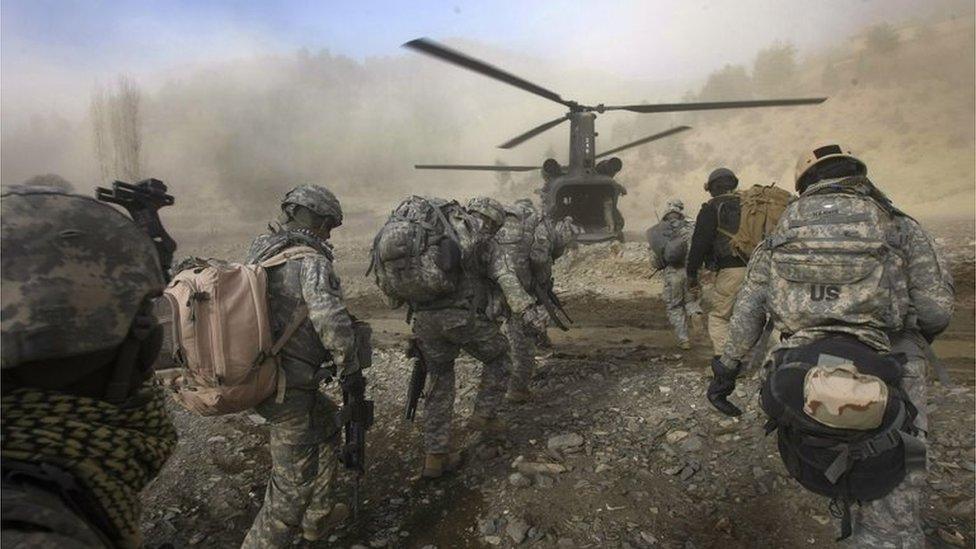
US forces in Afghanistan have long complained of attacks launched from over the border
Pakistan faced another shock when China, Turkey and Saudi Arabia - all close allies who have defended Pakistan's stance in the past - voted against Islamabad.
All three countries have suffered from Islamist extremists and are frustrated with Pakistan's failure to curb extremist groups on its soil. China is now the country with the most clout in Pakistan, external as it is investing some $60bn in infrastructure projects in the country.
In mid-May Pakistan submitted to FATF some new measures, external it would undertake to tighten the screws on extremists. These steps - now under consideration and details of which remain confidential - may not be sufficient to satisfy FATF, warn senior Western diplomats in Pakistan.
Pakistan has faced increasing diplomatic isolation because of its alleged harbouring of extremist groups. It has promised to help bring the Afghan Taliban to the table for peace talks but there has been little progress on that front.
US and Nato forces in Afghanistan have taken a highly critical line on Pakistan providing sanctuary for Afghan Taliban leaders and the extent to which Taliban supply lines stretch through Pakistan. Islamabad denies all these charges.
Pakistan has also proposed that Lashkar-e-Taiba be allowed to operate as a legitimate political party - something that would be unacceptable to the international community and many Pakistanis.
An offshoot of Lashkar operating under a different name has already taken part in by-elections and could well be allowed to participate in general elections scheduled for 25 July. Even though the US has a $10m bounty on the head of Lashkar's leader Hafiz Saeed, he is still free to make speeches.
Hafiz Saeed tells the BBC that Washington is unfairly targeting him
Meanwhile the government has still not implemented a disarmament and deradicalisation programme for militants, which was promised four years ago following the Peshawar school massacre. In official circles there is now talk of "mainstreaming militants", which means allowing them to take part in the political process.
The FATF review process also includes an assessment of whether Pakistan is regulating international NGOs appropriately - FATF is trying to stop governments using counter-terror justifications for restricting NGOs. Pakistan recently ordered some 22 international NGOs to shut down and leave the country, claiming they were a security risk.
After criticism from European ambassadors in Islamabad, Pakistan promised to review its ban on such global stalwarts of aid as Oxfam, ActionAid, Plan International and George Soros's Open Society. The results of the government's review are anxiously awaited especially by the thousands of Pakistanis who are employed by the NGOs.
NGOs are now required to obtain a "no-objection certificate" for their activities, which is difficult to obtain or just never granted. If not allowed to register, the international NGOs will have to leave the country. Western diplomats and NGO officials complain "very minimal transparency" is being exercised in the government's review process.
It is high time that Pakistan ended its long-running dependency on militants to sustain its foreign policy in the region. Islamist extremists have been threatening Pakistan for years. Western pressure has not worked and some diplomats hope China can play a more assertive role in getting Pakistan to comply.
If Pakistan fails to comply with FATF it will face a much more belligerent and friendless international community where it is possible that even allies like China no longer help to bail out Pakistan. China, too, has a great deal at stake in Pakistan's future and it certainly needs to exercise the influence it has in Islamabad.

Ahmed Rashid
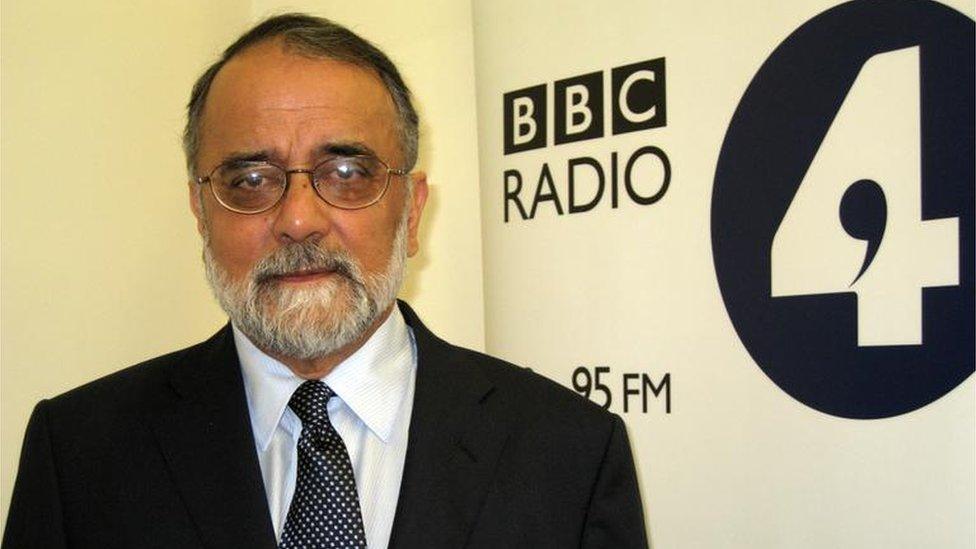
Ahmed Rashid is a Pakistani journalist and author based in Lahore
His latest book is Pakistan on the Brink - The Future of America, Pakistan and Afghanistan
Earlier works include Descent into Chaos and Taliban, first published in 2000, which became a bestseller
- Published28 May 2018
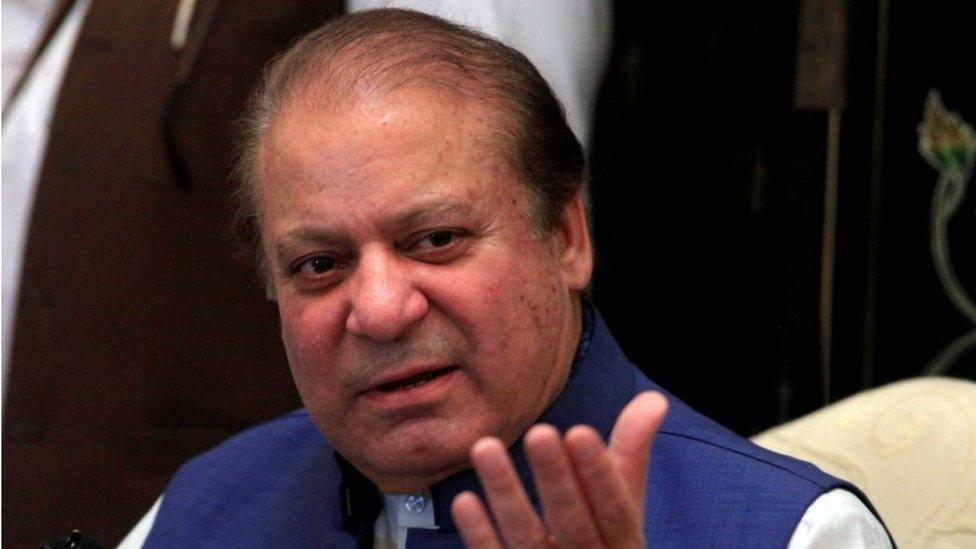
- Published23 November 2017
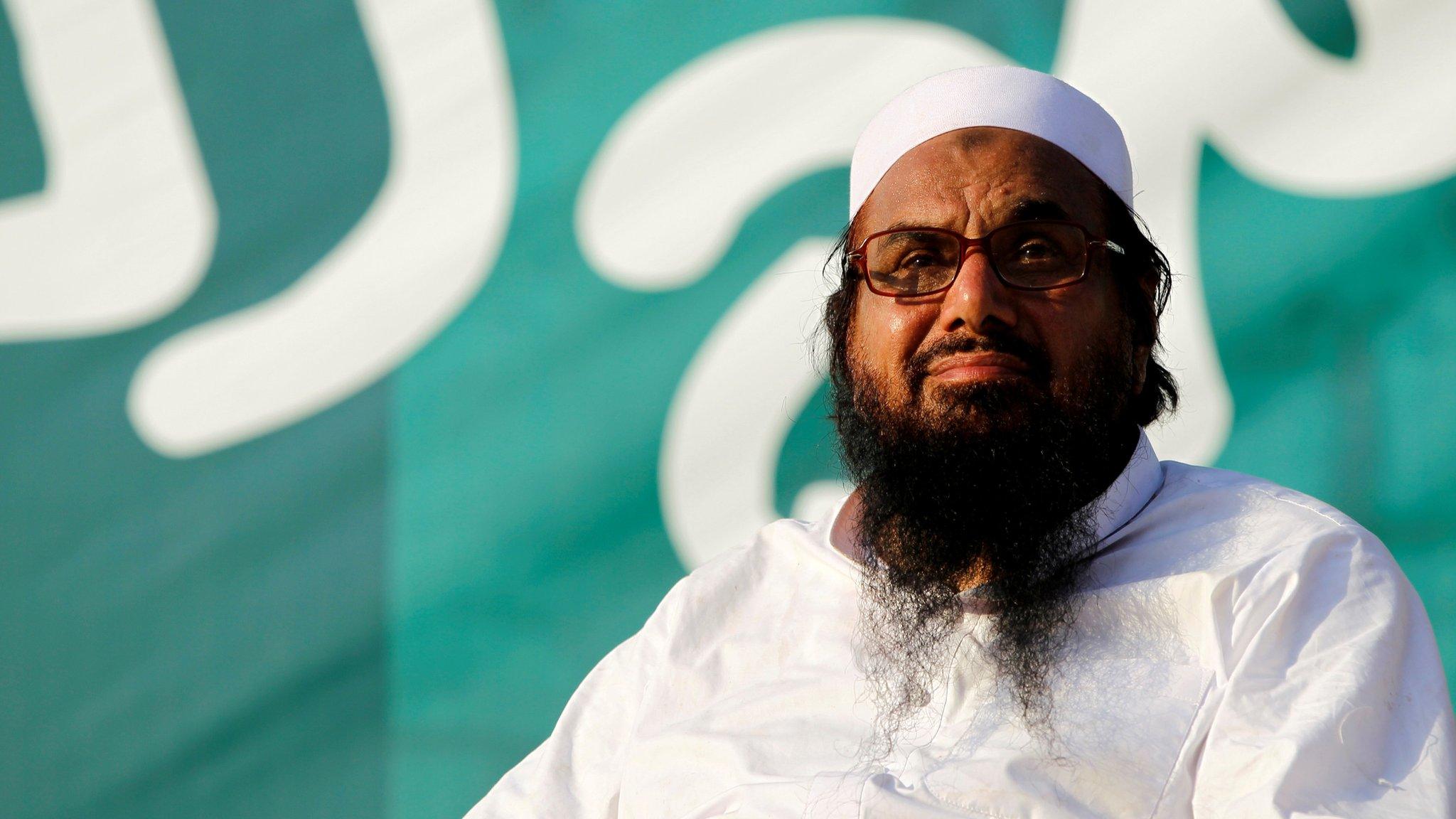
- Published1 February 2017
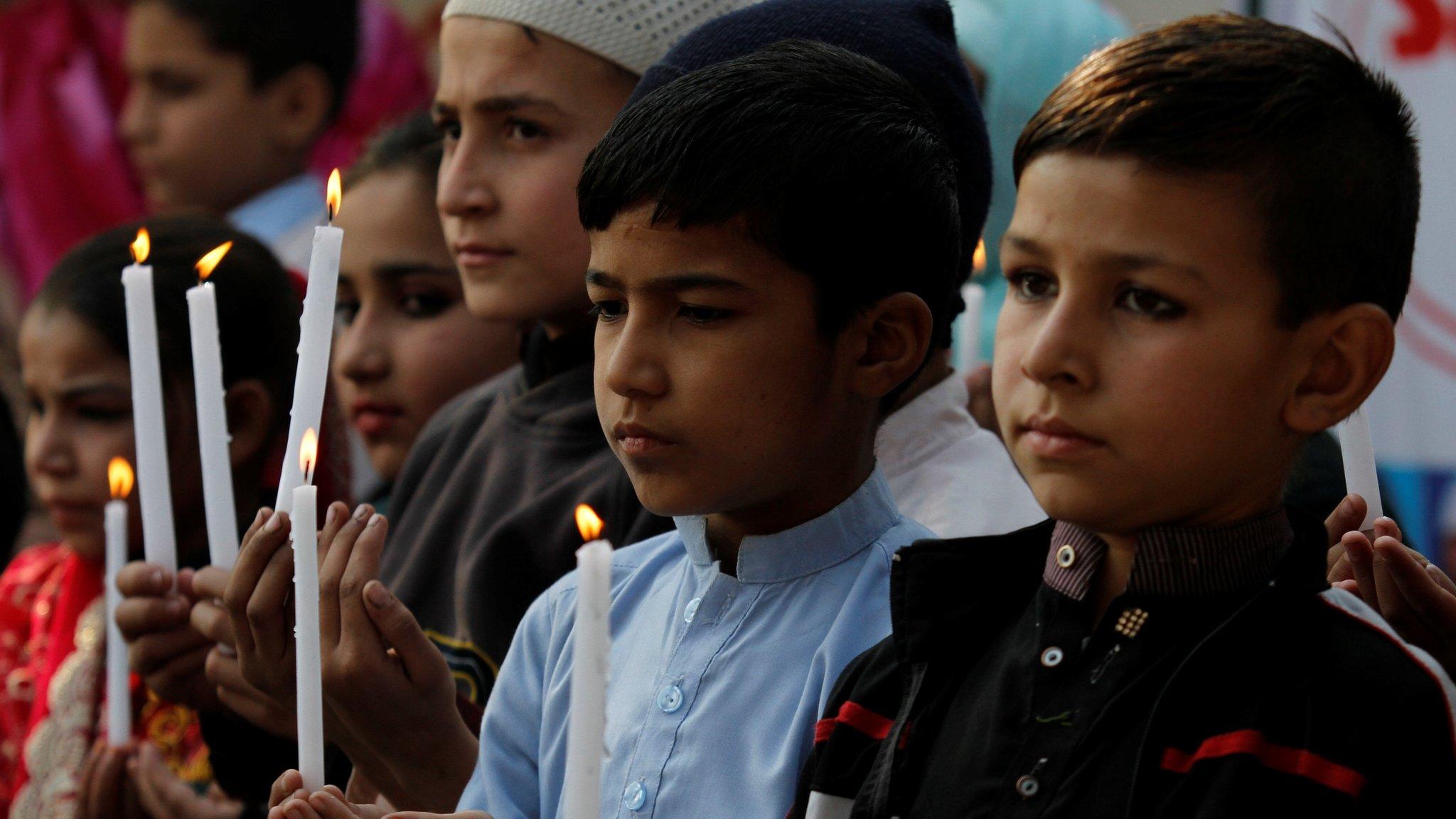
- Published2 July 2014